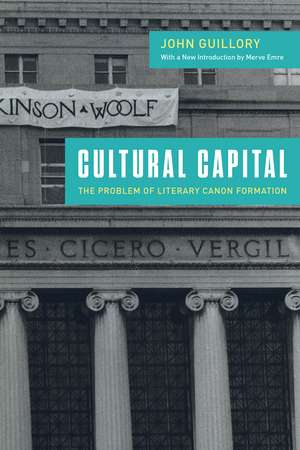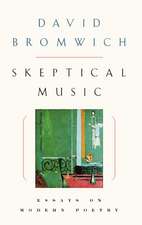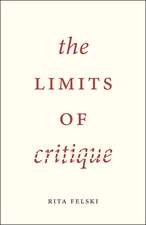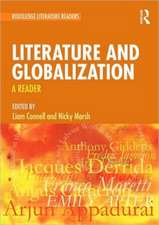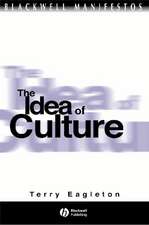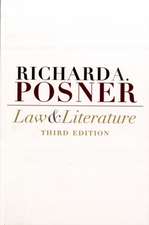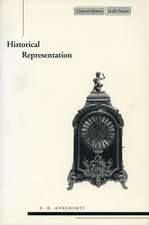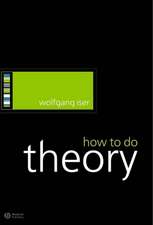Cultural Capital: The Problem of Literary Canon Formation
Autor Professor John Guillory Introducere de Merve Emreen Limba Engleză Paperback – 24 oct 2023
Since its publication in 1993, John Guillory’s Cultural Capital has been a signal text for understanding the codification and uses of the literary canon. Cultural Capital reconsiders the social basis for aesthetic judgment and exposes the unequal distribution of symbolic and linguistic knowledge on which culture has long been based. Drawing from Pierre Bourdieu’s sociology, Guillory argues that canon formation must be understood less as a question of the representation of social groups and more as a question of the distribution of cultural capital in schools, which regulate access to literacy, to the practices of reading and writing.
Now, as the crisis of the canon has evolved into the so-called crisis of the humanities, Guillory’s groundbreaking, incisive work has never been more urgent. As scholar and critic Merve Emre writes in her introduction to this enlarged edition: “Exclusion, selection, reflection, representation—these are the terms on which the canon wars of the last century were fought, and the terms that continue to inform debates about, for instance, decolonizing the curriculum and the rhetoric of antiracist pedagogy.”
| Toate formatele și edițiile | Preț | Express |
|---|---|---|
| Paperback (2) | 187.32 lei 3-5 săpt. | +23.52 lei 6-10 zile |
| University of Chicago Press – 24 oct 2023 | 187.32 lei 3-5 săpt. | +23.52 lei 6-10 zile |
| University of Chicago Press – mar 1995 | 274.19 lei 6-8 săpt. |
Preț: 187.32 lei
Nou
Puncte Express: 281
Preț estimativ în valută:
35.84€ • 39.06$ • 30.20£
35.84€ • 39.06$ • 30.20£
Carte disponibilă
Livrare economică 02-16 aprilie
Livrare express 18-22 martie pentru 33.51 lei
Preluare comenzi: 021 569.72.76
Specificații
ISBN-13: 9780226830599
ISBN-10: 0226830594
Pagini: 440
Dimensiuni: 152 x 229 x 43 mm
Greutate: 0.61 kg
Ediția:Mărită
Editura: University of Chicago Press
Colecția University of Chicago Press
ISBN-10: 0226830594
Pagini: 440
Dimensiuni: 152 x 229 x 43 mm
Greutate: 0.61 kg
Ediția:Mărită
Editura: University of Chicago Press
Colecția University of Chicago Press
Notă biografică
John Guillory is the Julius Silver Professor of English at New York University. He is coeditor of What’s Left of Theory? New Work on the Politics of Literary Theory and author of Poetic Authority: Spenser, Milton, and Literary History and Professing Criticism: Essays on the Organization of Literary Study, the latter of which is also published by the University of Chicago Press.
Cuprins
Introduction to the New Edition by Merve Emre
Preface
Acknowledgments
Part One: Critique
1 Canonical and Noncanonical: The Current Debate
Part Two: Case Studies
2 Mute Inglorious Miltons: Gray, Wordsworth, and the Vernacular Canon
3 Ideology and Canonical Form: The New Critical Canon
4 Literature after Theory: The Lesson of Paul de Man
Part Three: Aesthetics
5 The Discourse of Value: From Adam Smith to Barbara Herrnstein Smith
Notes
Index
Preface
Acknowledgments
Part One: Critique
1 Canonical and Noncanonical: The Current Debate
Part Two: Case Studies
2 Mute Inglorious Miltons: Gray, Wordsworth, and the Vernacular Canon
3 Ideology and Canonical Form: The New Critical Canon
4 Literature after Theory: The Lesson of Paul de Man
Part Three: Aesthetics
5 The Discourse of Value: From Adam Smith to Barbara Herrnstein Smith
Notes
Index
Recenzii
“Cultural Capital has become a stealth classic. . . . The canon, Guillory argued, wasn’t an impregnable monument, but an imaginary construct that had always been contested.”
“Guillory is the profession’s great disenchanter. He came to prominence with his landmark study Cultural Capital . . . a brilliant act of desublimation aimed at an earlier crisis of authority in the humanities, often referred to as the ‘canon wars.’”
“Cultural Capital is one of the most admired and influential studies in the humanities in recent decades. The hallmark of Guillory’s work has been to engage with, but stand back from, the issues roiling contemporary academic debates, setting them in a longer historical perspective and bringing a form of distanced, sociologically informed theory to their analysis.”
“A brilliantly iconoclastic exploration of the current state of literary criticism.”
“Cultural Capital is a distinctive contribution to the ubiquitous discussion of the ‘crisis’ in the humanities. Neither jeremiad nor apology, Guillory’s book is a densely reasoned sociological analysis of literary canon formation.”
“The suppleness of the book's argument overall places Guillory just where it feels right to be. He does not argue for the demolition of the canon or for the abandonment of aesthetic judgment; he advocates, rather, a struggle to disjoin the study of literature from markers of class prestige and to open up universal access to it.”
“Cultural Capital is a rich book. It rewards the reader with original and often surprising interpretations of buried structural relations of exclusion that are objectified in the canon debate… Guillory is concerned about who reads and who writes; he is also concerned about for whom writers write and under what conditions.”
“Cultural Capital takes possession of the whole familiar canon debate and transforms it into something rich and strange, new and exciting.”
“Not merely an intelligent voice in the canon debate, Guillory is among a short list of authors… who have provided the signal service of helping us in the academy to understand in a profound way the function in society as a whole of the institution we serve. . . . Guillory places the canon wars in the context of the social changes that, he argues, have produced the current crisis of the humanities.”
“The signature of Cultural Capital… consists in the close attention Guillory pays to the institutional and pedagogic underpinnings of literary critical and theoretical programmes.”
